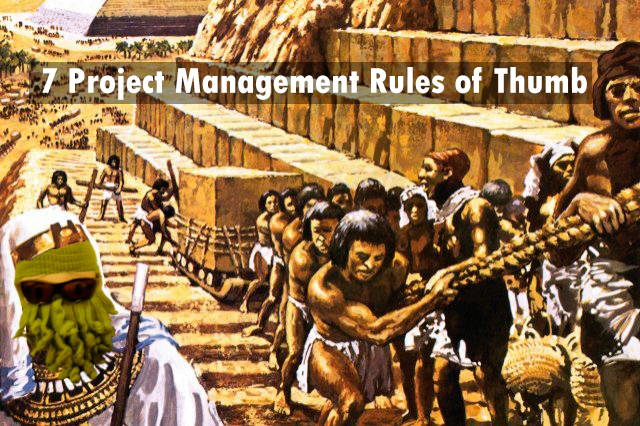First point; most important is to limit the scope. You have to set limits, how big the project will be, how long the production time will be, what assets are needed, your budget, what features will be included, etc. The longer the project goes on, the less likely it will be successfully completed.
Second point; you have to consider the marketing angle. Lots of developers try to make games. Lots of artists try to make comics. Of the few whose projects are completed, very few’s works get widely noticed. Few become financially successful. You have to think who your intended customer is, and are there enough people like that, that your product will gain a vast fanbase. Catering to a small niche market that lacks content helps in winning the competition, but the market still has to be populous, or particularly loaded with expendable income. Pick your customer, study him, provide service, destroy his wallet.
Third point; in my observation, creativity works best when contained within certain parameters. It’s much better to steal ideas with financially successful track records, and give them your own little twist. During development, as you solve the various creative puzzles, you will naturally get new ideas, that can expand upon your product. You can make expansions, sequels, spin-offs. But build a core product first, that resonates with a paying customer.
Fourth point; limit the risks of stakeholders. Partners you are gauging, be they artists, coders, writers, financiers, are often very willing to take risks with you, when you limit their risk of getting nothing for their sacrifices. Create some guaranteed return of investment for people involved; experience, new contacts, rights to use created assets. Some people may wanna get involved, just to see how your project will go. They want to observe, to draw lessons. But the biggest part of limiting stakeholder risks, is paying people during development. That way, everyone feels at ease that they’re getting at least something for their time. If you are a responsible project leader, you do not build a project on hype marketing.
Fifth point; negotiate. Open discussion about your wishes, goals, and fears, is crucial to any relationship. Almost every issue between people stems from communication errors. Very, very rarely is anyone trying to scam you. Even emotionally dead sociopathic shady people often prefer clean, stable business. Just talk things out, map out concerns. Discuss solutions. The most important feat of a good partnership, is that parties are able to communicate with each other. Take responsibility for your own part as a shaper of the relationship.
Sixth point; test your people. Most people are trash. You can’t sugar-coat this fact. Humanity suffers from a lack of quality, and unless you really test your people, with tough questions, and forcing them to work for shitty initial pay, you’ll end up investing money into faggots that will simply disappear on you. We see this all the time in Kickstarter projects, where creators have no studio oversight: smooth talkers will swindle you of your money, and throw a luxury gay orgy. It’s better to lower the ambitions of the project, hire less people, than piss money into the wind.
Seventh point; cut the right corners. No project is ever gonna be perfect, and if you strive for perfection out of some neurotic fear of audience rejection, you will fail. You must be willing to accept imperfections in your product. I say this to developers; don’t make a game, make a career.

